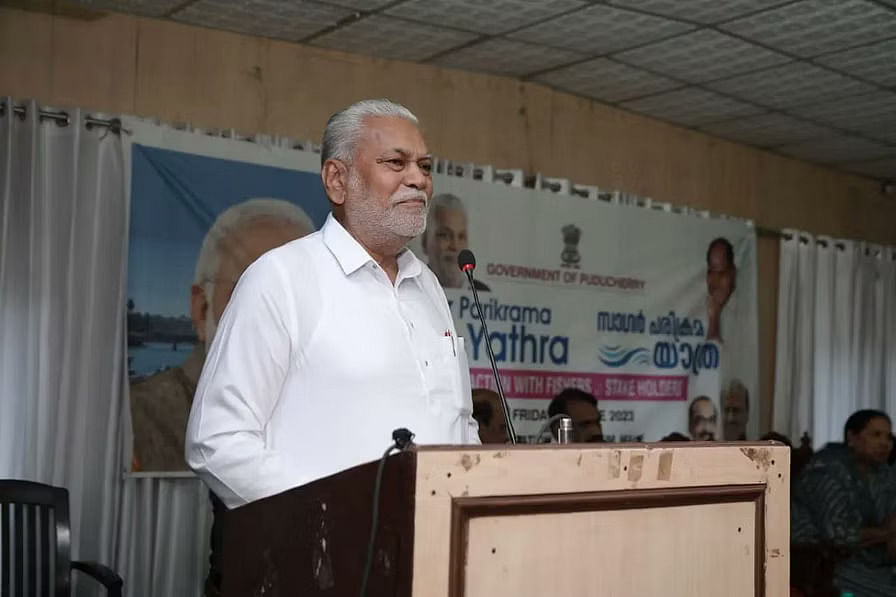
Union Minister of Fisheries, Animal Husbandry & Dairying, Parshottam Rupala, spearheaded the second day of Sagar Parikrama Phase-XII at the Kakdwip Research Center of the Central Institute of Brackishwater Aquaculture (CIBA), in the South 24 Parganas district of West Bengal. The event witnessed the presence of key dignitaries, including Neetu Kumari Prasad, Joint Secretary, Department of Fisheries (DoF), Dr. L.N Murthy, Chief Executive, and officials from the Government of West Bengal.
Technological Innovations in Aquaculture
During the visit, Union Minister Rupala inspected techno-economically viable and sustainable culture systems for finfish and shellfish in brackishwater. Discussions revolved around crucial aquaculture drivers, including seed production, farming of diversified species, and the use of indigenous feeds. Technical officers from CIBA informed about ongoing research on various fish types, such as hilsa and Bengal bream, emphasizing the scaling up of technology support for the development of sustainable brackishwater aquaculture.
Milestone Achievement of Sagar Parikrama
The completion of Sagar Parikrama Yatra Phase-XII marked a significant milestone, reaching approximately 114 locations in a total of 12 phases. The journey has been pivotal in addressing the concerns and challenges faced by fishermen, motivating them to leverage schemes like PMMSY and KCC for their betterment.
Empowering Coastal Communities
Union Minister Rupala's Sagar Parikrama Yatra, themed ‘KRANTI se SHANTI,’ commenced on March 5, 2022, from Mandvi, Gujarat, and has covered various coastal districts and fishing villages across India. The objective is to facilitate interactions with fishermen, coastal communities, and stakeholders, disseminating information about government fisheries-related schemes and programs.
Transformative Impact on Livelihoods
The program has been embraced by fishermen and fish farmers as an instrument of their development. It has had a profound impact on the livelihoods and holistic development of fishermen and fisherfolk, addressing challenges related to climate change and promoting sustainable development.
With interactions held at approximately 114 locations, the Sagar Parikrama Yatra has engaged with fishermen and fisheries stakeholders at their doorstep. The comprehensive approach has contributed to a positive transformation in the lives of coastal communities, showcasing the government's commitment to the welfare and development of the fishing sector.
















